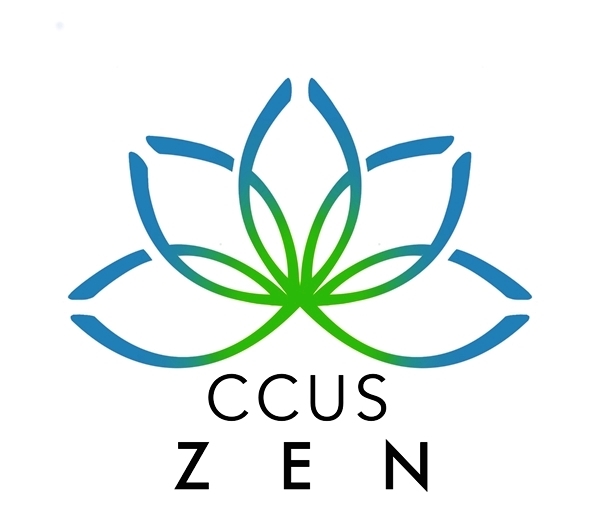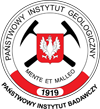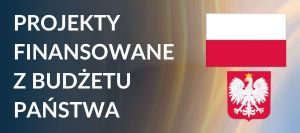Zeroemisyjna sieć ułatwiająca wdrażanie CCUS w klastrach przemysłowych / Zero Emission Network to facilitate CCUS uptake in industrial clusters (CCUS ZEN)
Rodzaj: Międzynarodowy
Kategoria wyszukiwania:
geologia środowiskowa
Słowa kluczowe:CCUS (Carbon Capture, Use and Storage), CO2 industrial clusters, value chain, Baltic Sea Region
Rok rozpoczęcia: 2022
Rok ukończenia: 2025
Kierownik projektu: Adam Wójcicki
Główny zleceniodawca:Europejska Agencja Wykonawcza ds. Klimatu, Infrastruktury i Środowiska (CINEA) / The European Climate, Infrastructure and Environment Executive Agency (CINEA)
Źródło finansowania:HORIZON EUROPE EU programme

Project Consortium
- Sintef AS (SINTEF), Norway (the coordinator)
- Tallinna Tehnikaülikool (TalTech), Estonia
- CO2 Value Europe AISBL (CVE), Belgium
- Perspectives Climate Research gGmbH (PCR), Germany
- Państwowy Instytut Geologiczny - Państwowy Instytut Badawczy (PGI-NRI), Poland
- AB Yrkeshogskolan VID ABO Akademi (Novia UAS), Finland
- Geological Survey of Denmark and Greenland (GEUS), Denmark
- Middle East Technical University (METU), Turkey
- Bureau de Recherches Geologiques et Minieres (BRGM), France
- IOM Law Advokatfirma AS (IOM), Norway
- Technip France SAS (T.EN), France
- Ramboll Danmark AS DK (Ramboll), Denmark
- Axelera - Association Chimie-Environnement Lyon et Rhone-Alpes (Axelera), France
Associated partner
- The University of Edinburgh (UEDIN), United Kingdom
Project goals
The overarching goal of CCUS ZEN is the accelerated deployment of CCUS throughout Europe, which will be achieved by:
- Sharing knowledge and disseminating information important for stakeholders to make informed decisions on CCUS
- Developing specific and actionable plans for the development of CCUS value chains
Project scope and outputs
As CCUS developments around the North Sea (NS) region are relatively mature, CCUS ZEN will leverage these developments as best practice for the development of new CCUS value chains in the currently underdeveloped Baltic Sea (BS) and the Mediterranean Sea (MS) Regions.
While CCUS value chains, i.e., the entire pathway from CO2 capture to transport to its eventual storage or utilization, can today be realized there, the industry is still in its infancy and many issues must be addressed to achieve the rapid deployment required.
The consortium, consisting of 14 partners, including 2 associations with over 400 members in total, brings together entities with leading expertise on all aspects of CCUS value chains. Additionally, 30 organisations, representing industry, research organizations, associations, NGOs (Bellona, Norway), clusters, ports and municipalities involved in the development and deployment of CCUS value chains, will contribute their expertise as networking partners.
Starting from an analysis of the technical and non-technical state-of-play in the BS and MS regions, CCUS ZEN will select at least eight value chains (four in each region; including at least one in Poland) for detailed study and comparison with successful value chains from the NS region.
One value chain from each analysed region will then be selected as most promising, with a detailed plan for further development.
Through its knowledge-sharing activities and transfer of best practices from the NS region, CCUS ZEN will provide an information basis for the future CCUS value chains, including policy recommendations and a blueprint for CCUS value chain development, including easily accessible technology and CO2 source mapping, generic technical frameworks and business plan models.
Project coordinator:
Eirik Falck da Silva, SINTEF, Norwey
Manager of PGI-NRI part: Adam Wójcicki
Adam Wójcicki
Funding
HORIZON EUROPE EU programme
- Total project budget: 1 782 627.50 euro
- EU contribution: 1 782 627.50 euro
- PGI-NRI budget: 44 750.00 euro
Konsorcjum projektu
- Sintef AS (SINTEF), Norwegia (koordynator)
- Tallinna Tehnikaülikool (TalTech), Estonia
- CO2 Value Europe AISBL (CVE), Belgia
- Perspectives Climate Research gGmbH (PCR), Niemcy
- Państwowy Instytut Geologiczny - Państwowy Instytut Badawczy (PIG-PIB), Polska
- AB Yrkeshogskolan VID ABO Akademi (Novia UAS), Finlandia
- Geological Survey of Denmark and Greenland (GEUS), Dania
- Middle East Technical University (METU), Turcja
- Bureau de Recherches Geologiques et Minieres (BRGM), Francja
- IOM Law Advokatfirma AS (IOM), Norwegia
- Technip France SAS (T.EN), Francja
- Ramboll Danmark AS DK (Ramboll), Dania
- Axelera - Association Chimie-Environnement Lyon et Rhone-Alpes (Axelera), Francja
Partner stowarzyszony
- The University of Edinburgh (UEDIN), Wielka Brytania
Cele projektu
Nadrzędnym celem CCUS ZEN jest przyspieszenie wdrożenia CCUS w całej Europie, co zostanie osiągnięte poprzez:
- dzielenie się wiedzą i rozpowszechnianie informacji ważnych dla interesariuszy w celu podejmowania świadomych decyzji dotyczących CCUS,
- opracowanie konkretnych i możliwych do podjęcia działań planów rozwoju łańcuchów wartości CCUS.
Zakres projektu i wyniki
Ponieważ stopień rozwoju technologii CCUS w regionie Morza Północnego (MP) jest stosunkowo dojrzały, CCUS ZEN wykorzysta doświadczenia związane z tym rozwojem jako najlepsze praktyki dla rozwoju nowych łańcuchów wartości CCUS w obecnie słabo rozwiniętych regionach Morza Bałtyckiego (MB) i Morza Śródziemnego (MŚ).
Chociaż łańcuchy wartości CCUS, tj. cała ścieżka od wychwytywania CO2, poprzez transport, aż do jego ostatecznego składowania lub wykorzystania, mogą być dziś tam realizowane, przemysł jest wciąż w fazie rozwoju i wiele kwestii musi zostać rozwiązanych, aby osiągnąć wymagane szybkie wdrożenie.
Konsorcjum, składające się z 14 partnerów, w tym 2 stowarzyszeń o łącznej liczbie ponad 400 członków skupia podmioty posiadające wiodącą wiedzę na temat wszystkich aspektów łańcuchów wartości CCUS. Ponadto 30 organizacji, reprezentujących przemysł, organizacje badawcze, stowarzyszenia, organizacje pozarządowe (Bellona, Norwegia), klastry, porty i gminy zaangażowane w rozwój i wdrażanie łańcuchów wartości CCUS, wniesie swoją wiedzę jako partnerzy sieciowi.
Wychodząc od analizy technicznego i nietechnicznego stanu rzeczy w regionach MB i MŚ, CCUS ZEN wybierze co najmniej osiem łańcuchów wartości (cztery w każdym regionie; w tym co najmniej jeden w Polsce) do szczegółowego badania i porównania z udanymi łańcuchami wartości z regionu MP.
Jeden łańcuch wartości z każdego analizowanego regionu zostanie następnie wybrany jako najbardziej obiecujący, ze szczegółowym planem dalszego rozwoju.
Poprzez działania związane z dzieleniem się wiedzą i transferem najlepszych praktyk z regionu MP, CCUS ZEN zapewni bazę informacyjną dla przyszłych łańcuchów wartości CCUS, w tym rekomendacje polityczne i plan rozwoju łańcucha wartości CCUS, a także łatwo dostępne informacje na temat technologii i źródeł CO2, ogólne ramy techniczne i modele biznesplanów.
Koordynator projektu
Eirik Falck da Silva, SINTEF, Norwegia
Kierownik zadań realizowanych w PIG-PIB
Adam Wójcicki
Finansowanie
Program UE HORYZONT EUROPA
- Całkowity budżet projektu: 1 782 627,50 euro
- Wkład UE: 1 782 627,50 euro
- Budżet Państwowego Instytutu Geologicznego-PIB: 44 750,00 euro.





